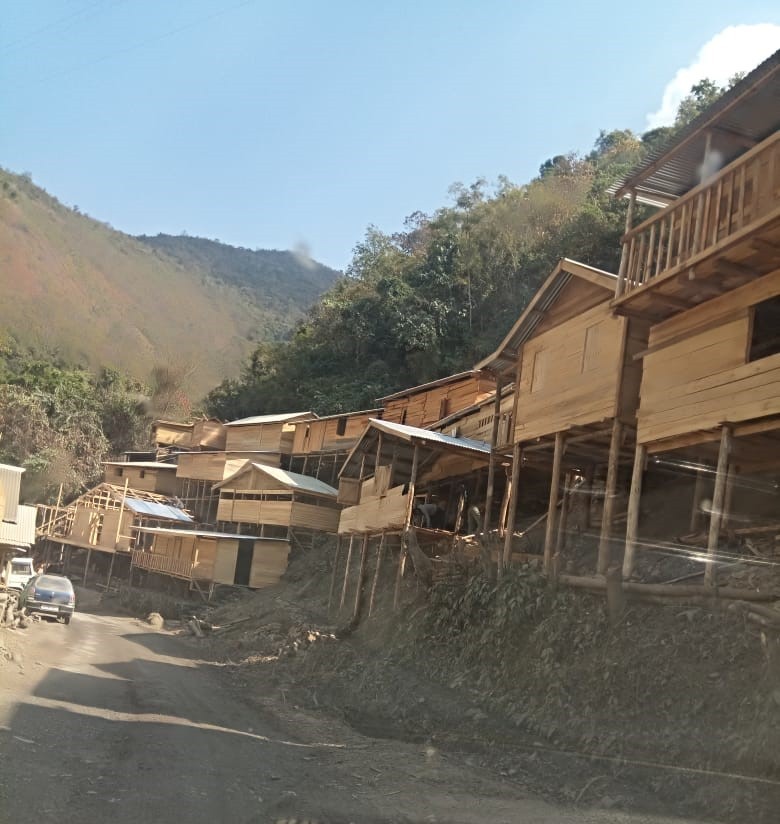Newly constructed houses have come up quickly along the NH-29 Kohima-Jessami road. Many view it as a ploy to receive compensation as road construction works begin along the stretch.

Vishü Rita Krocha
Kohima | April 19
Since the launching of the two lane with hard shoulder construction work at the Kohima-Jessami road on National Highway-29 in December last year, there has been random construction of temporary houses along the highway. This is viewed by many as a ploy to get compensation.
It may be recalled that Union Minister for Road Transport, Highways and MSMEs, Nitin Gadkari had virtually laid the foundation stone for the project along with other road projects in Nagaland on December 4.
Many travellers who have taken the route in the last couple of months have been witness to the mushrooming of buildings along the highway.
“In a span of 3-4 months particularly from Lanye to Jessami, many new temporary houses are mushrooming along the side of the roads which are being built by the local communities in their own land for higher compensation,” Khrolhiwe-u Tsuhah who recently travelled across the same highway observed.
For a long time, she noted, “it has been a dream of the Naga communities particularly in far flung interior rural areas to have good road infrastructure which will help/enable us to have access to better road mobility and markets which will boost agricultural production and productivity, creation of other livelihood opportunities and access to quality education, health and financial services and other basic services.”
However, she expressed disappointment on the recent development. “Nagaland is known for strong local institutions at the village level and are known for being truthful and brave and as the apex body make decisions for holistic development in their own communities,” she said.
“It makes me question whether the leaders are ignorant about the situation or are not taking enough responsibility to share about the significance on why community role is vital in ensuring that good quality roads are constructed in their own locality. Or our people are not listening or respecting leaders anymore for selfish gain,” she wondered.
“Are their own villagers aware about the situation and benefits the good road infrastructure would bring for their present community and younger generations?” she further posed.
She said that when the government is making an effort to improve road connectivity, “it is a good opportunity for local communities to fully support and assist in the process.”
“During the technical surveys, we could help in sharing our local knowledge and concerns in the area if the road is crossing a heritage site or important water source for the community. They could suggest other alternative routes nearby or find local solutions with the technical agency, etc,” Tsuhah said.
This will also enhance participatory process, transparency and accountability which is vital for better infrastructure and service delivery and beyond, she emphasised.
Dr Esther Krocha Raikhan, who also frequents the highway termed it “appalling!” She viewed the development as solely to run after compensation. “It’s like there is one village already” she stated, while expressing disappointment in the “short-sightedness” of people.
“It just shows that we want to immediately grab for ourselves whatever we can, instead of thinking for the common development of our people,” Raikhan said.
Pointing to the newly constructed houses, a teacher who did not wish to be named said “it may be individually very beneficial but this is such a great loss for the public” while expressing concern in the utilisation of the fund which may eventually hamper the quality of work.
Another citizen who chose to remain anonymous expressed that “such actions do paint a picture of how a single society who is in dire need of basic infrastructures/development can put a hiatus to it, causing a ripple effect to the larger crowd.” Such actions, she pointed out showcased the need to fight corruption “from the very top to the community level.”






